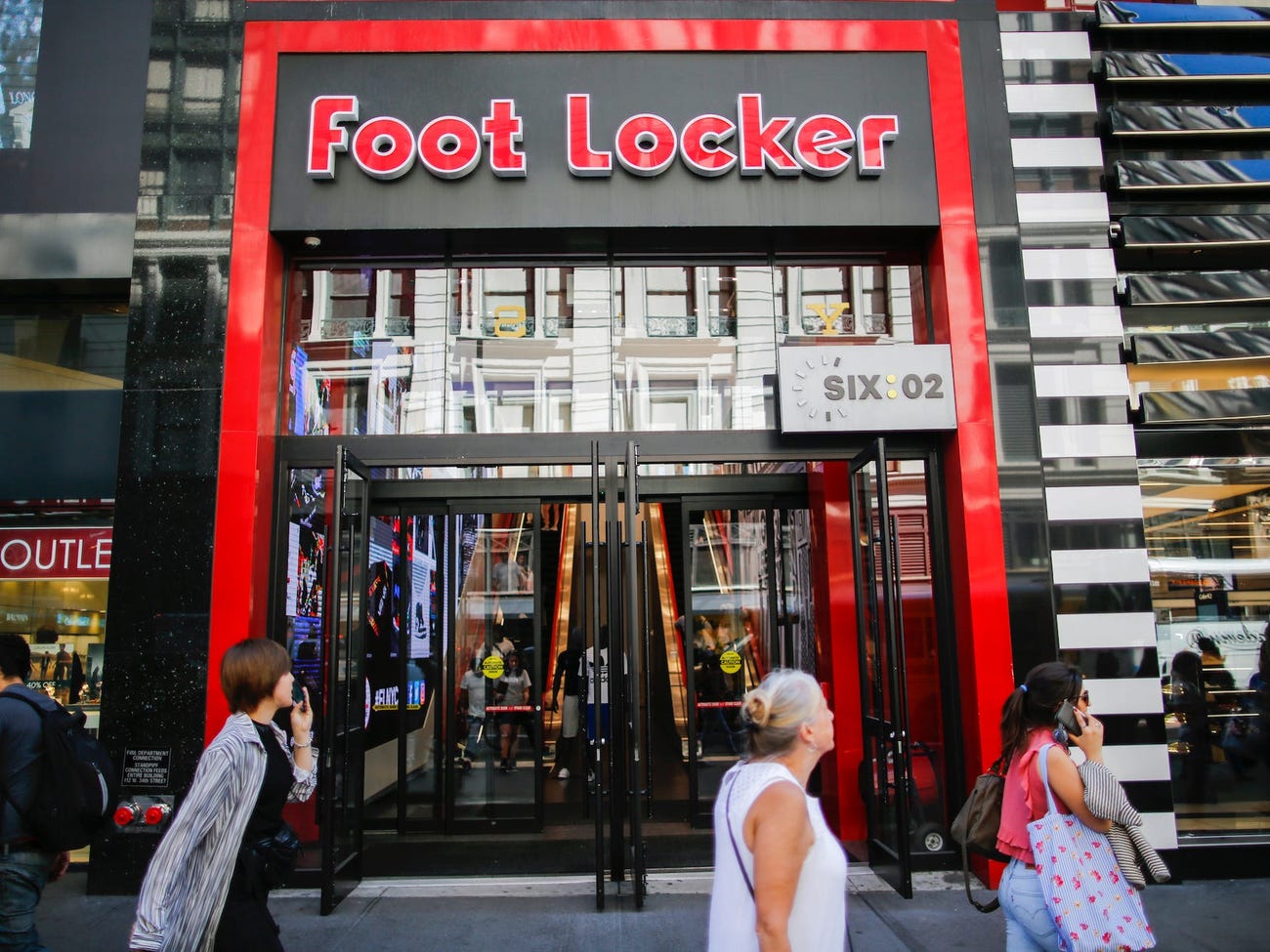Foot Locker CEO explains why the sneaker industry should lead the way in diversity and inclusion as the retailer rolls out its own five-year plan to help mitigate the problem

Foot Locker has put its money where its mouth is when it comes to financial support for the Black community. Foot Locker has invested $5 million into Black-led VC firm MaC Venture Capital.
“We’re thankful for Foot Locker’s support and partnership. Capital is one thing, but when you have the opportunity to partner with an organization that’s aligned in your values and is actively demonstrating its commitment to the Black community—that’s truly special…At MaC Venture Capital, the companies that we invest in are embedded in and helping to build upon culture. Foot Locker has had it’s finger on the pulse of culture for some time now, so we’re looking forward to trading data on what we both see as emerging cultural shifts and the white spaces within.” –MaC Venture Capital Co-Founder and Managing Partner Marlon Nichols
Like many leading footwear companies, Foot Locker Inc. made public commitments to support the Black community this past summer in the wake of the killing of George Floyd and the ensuing protests that spread across America.
But as a brand already entrenched in diversity, Foot Locker’s role in setting the corporate tone was not lost on its CEO, who said the footwear industry has a unique “responsibility in a leadership position” to impact other business sectors as well.
“Our business exists because of the passion of the Black community around sneakers,” Foot Locker Inc. CEO and chairman Dick Johnson told Insider in an exclusive interview, noting how the sneaker world is intrinsically bound to Black culture.
Seven months after its announcement pledging to take its diversity efforts to new levels, the footwear retailer is following through on its word. The company on Tuesday released a detailed update on its commitments, now dubbed the L.E.E.D (Leading in Education and Economic Development) initiative, which includes a $200 million investment over the next five years in scholarships for entry-level employees and through a partnership with the United Negro College Fund, as well as design initiatives and programs for associate corporate advancement within Foot Locker.
“There is a power of the brand. And I recognize that,” said Johnson. “Using your voice in an authentic way to address situations I think is ultimately how you carry that weight.”
Leading in education and economic development
Though Johnson said there was no official “playbook” when it came to finalizing Foot Locker’s next steps, the company’s goal was to focus on efforts that were genuine as opposed to performative.
Foot Locker Inc. — whose brands include Champs, Eastbay, Footaction, and Sidestep — has about 3,000 retail stores across 28 countries, and is taking a holistic approach to the issue rather than simply “writing a check,” Johnson said. The new initiative will hit all levels of the company’s business, from design partnerships to store associate growth opportunities.
Still, Foot Locker has put its money where its mouth is when it comes to financial support for the Black community. Since June 2020, Foot Locker has invested $5 million into Black-led VC firm MaC Venture Capital, which supports diverse-led businesses. It has also invested $750,000 into Pensole, a design academy that helps mold the next wave of young footwear designers on their path into the industry.
The L.E.E.D program will continue this support. In the education realm, Foot Locker will initially add $250,000 worth of scholarships for Black team members via its associate scholarship program and has committed to $150,000 in new scholarship funding for Black students via its partnership with the UNCF.
“Foot Locker has a powerful voice,” Diego Aviles, UNCF’s vice president of development for the Northeast division, told Insider in an interview. “And when the company speaks about the importance of historically Black colleges and universities, getting more Black students to and through college, others listen.”
According to Foot Locker, these financial allocations represent just a portion of how the company will divvy up its $200 million overall commitment. Over the next five years, Foot Locker plans to release annual progress updates regarding these efforts.
“It’s an operating model change for us,” Guy Harkless, the senior vice president and general manager at Champs Sports and Eastbay and a major figure behind the L.E.E.D movement, added. “We feel it’s something that really changes how we operate our entire business.”
Confronting diversity internally
In general, the events of last summer spurred a reckoning for the sneaker industry, as outwardly diverse brands were forced to confront their own internal problems related to Black representation and diversity in the workplace.
Brands like Adidas, Nike, and Under Armour wasted little time over the summer acknowledging company-wide problems with inclusion and diversity and announcing new initiatives to mitigate the problem.
Foot Locker is already known for having a relatively diverse workforce. The company was recognized in 2019 as one of the best workplaces for diversity by the Great Place to Work Institute, which surveys and publishes reports about more than 7,000 workplaces in the US. Foot Locker also reported in 2019 that 84% of its US employees, 20% of its executives, and 27% of its independent board directors were ethnically diverse.
But the company recognizes that there is still room for growth. Part of the L.E.E.D program focuses on creating a more diverse staff and giving store associates the ability to advance to corporate roles in the company.
. . .
Keep reading the full article from Business Insider.